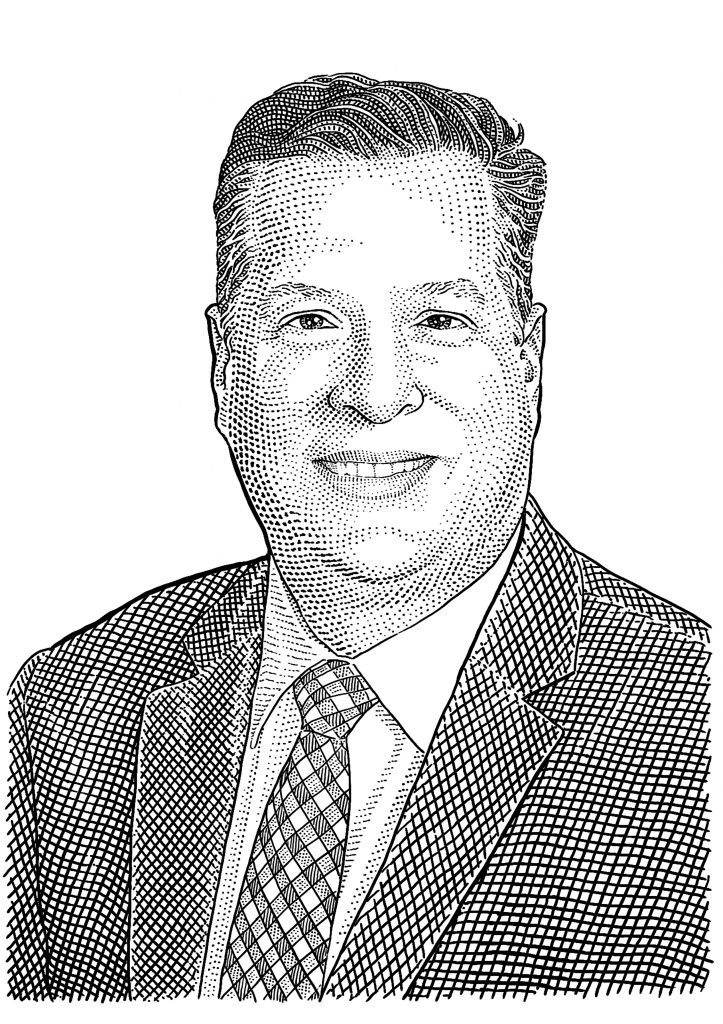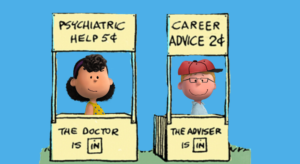Calvin Rhodes, Georgia Technology Authority (GTA) Executive Director and CIO for the state of Georgia, is an expert in both business and technology leadership. Calvin has overseen a long list of projects to help serve the citizens of Georgia, including partnering with the private sector for hiring needs, working with the military at the Georgia Cyber Center and opening new educational opportunities for students with the university system.
We had the chance to sit down with Calvin and talk about his experience as a technology leader in government and how he manages the two roles that his titles cover. Working closely with the Governor, Calvin oversees information technology processes that affect all levels of government across the state.
In this issue, Calvin spoke with us about some of the most important objectives he has overseen, plans for future innovation with the state of Georgia and the importance of partnerships with the private sector. We also had the chance to ask him about leadership advice for aspiring CIOs and some of his favorite books.

Walk me through your CIO path. How did you decide to pursue a career in technology, and how did you progress to your current organization?
In college, I majored in Computer Information Systems (CIS) and minored in Business Management. After I graduated from college I started to involve myself with IT projects professionally at Fulton Paper Company, which helped me learn more about our databases and the information we were collecting and storing. As years went by, my ability to lead our IT organization created a direct path to a leadership position. I moved to other areas in the company, but I always played a role in IT as well. Eventually, I became an Executive Vice President.
After Southeastern Paper Group purchased us, I sent in my information to the state government following Governor Deal’s election. I originally looked for a board appointment, but his team called me in for three positions they wanted to talk to me about. One was the state CIO and Executive Director of GTA role, which is where I am today.
Would you consider yourself a CIO/CTO or a hybrid? Why? What are the essential differences?
I believe my role is that of CIO rather than CTO. Most of my days are spent working with state leadership. I help agencies with areas they may have concerns in, such as trying to find ways to solve technological problems or plan their budgets. Most of my focus is internal.
We have to be good stewards of taxpayer dollars because there are lots of priorities competing for those dollars. I would say I am a CIO because 90% of my time is inwardly-focused, helping agencies become successful.
What personal traits and attributes are essential for today’s CIO versus 10 to 20 years ago?
The consumerization of IT has had a huge effect on technology leadership roles. From a state perspective, that means citizens often develop technology expectations because of other programs or applications they use, and we have to meet those expectations with our own systems. I think this consumerization drives the current state of our role.
The operational component of technology is very important, but so are strategic discussions around that technology. In the case of the state, there are 85 Executive Branch agencies that we support and each of those has employees with different skill levels. Some people are more comfortable on their own, but others we want to assist as much as possible.
I think being able to have business discussions is key to technology leadership today. Quite often, our profession goes for technical solutions without considering the end result the business is trying to achieve. If you’re going to get involved with strategic discussions that bring more value to the organization, you need to make sure your communication skills are good. You need to leave the technical jargon behind and really focus on what the business is trying to accomplish. That, to me, is the most important thing about technology leadership.
What initiatives have you overseen to date in your time with the state of Georgia? What’s on the horizon?
Our modernization efforts have been huge. We’ve put in security systems and layers of security for our networks. We believe we’re one of the most secure states from a network and infrastructure standpoint. This is a great accomplishment for the state, because we’re able to protect our data so effectively.
We’re also working on initiatives to create broadband access for rural Georgia. Specifically, we’re working with three or four different agencies to try to get a framework in place that we can use to help the private sector see a return on investment in areas that would typically not make financial sense for them to invest in.
When I’m no longer working with the state though, the single project I’ll look back on with the most pride is the Georgia Cyber Center. This is located in Augusta, and the governor announced it in January of 2017. We’re working with the university system and the Army to focus on education and training components. We’ve been successful in starting an ecosystem that brings together technology, government, education and the private sector.
Share your thoughts on the availability of IT talent. What strategies do you employ, and what’s different in your organization?
Training is a huge component. The second piece is private sector partnership. The state can’t always afford to pay the salaries for the specialized talent that we need, so we’ve made it easier for our people to go to the private sector and acquire some of those skills.
The third area is something fairly new for us, we call it Shared Services. We allow agencies to buy a fractional share of a person’s time, an initiative that is focused primarily toward smaller agencies. This strategy allows us to pay a competitive salary and find people with experience that the agencies can access.
When we look at our IT needs across the state, we know we may struggle to afford the salary for a position like a data scientist, for example. Having private sector partners who specialize in this space and will allow us to hire individuals for a short amount of time is a valuable resource.
What advice would you give to someone who aspires to be a CIO?
Timing is everything. This is a great time to have an interest in the many different areas associated with IT. Corporations have a much greater interest in this field, so it’s a great time to look in this direction for a career. Individually, and I think this is true for all of life, you have to be a trusted source for information. I appreciate people who honestly tell me when they don’t know an answer. When you lose someone’s trust, it’s very hard to get it back.
You also need to keep the big picture in view. Participate in meetings, take the big goals of an organization, and make sure the role that IT plays supports these goals and objectives. If you only focus on your individual tasks, that’s not what senior leadership is looking for. We’re in a great position to turn data into information, so if you turn that information into business strategies you will become indispensable. These are the skills people are looking for in a CIO. The biggest part of this advice is to be trustworthy. It’s very hard to gain trust back.
How do you decompress from the challenges of being a CIO? What do you do for fun?
We love to travel. We try to make sure we always have something on the horizon to look forward to. Good food is also great, whether I’m cooking it or eating it. More than anything else, I enjoy the conversations that go on around these activities. Travelling, and enjoying good food and good people, is always relaxing.
Who have been your biggest influences, and why?
A.W. Lamb. He took an interest in me and mentored me over the years. He excelled at getting all the right people with different knowledge together to solve problems when they came up. There isn’t always a great path, but we can still find the best one.
I also appreciate Governor Deal. He always maked sure we understood the important things and how they tie into the big picture. Secondly, he always gave us the flexibility we need to accomplish our goals. This mindset has taught me more than anything else. The only way to be successful at a large organization is to rely on the team around you and to make sure they know that you’ll back them up.
Which books have you gifted the most over your career? What are the top books that you recommend?
I often refer back to Scott Klososky’s “Enterprise Social Technology.” I heard him speak on the topic. It’s very interesting how you try to learn from your competitors. I also like “The Strategic CIO” by Philip Weinzimer because it focuses on how we need to make sure we’re at a strategic level with our leadership, whoever that leadership might be.
If you weren’t doing the job that you have today, what would be your dream job?
When life is over as the state CIO, and it’s time for retirement, it might be nice to play chef a little bit. I don’t know if I have the palate to be a sommelier, but that also would be a very fun job. My dream job might be at a French chalet working as a winemaker, though. I think that would be a lot of fun.
We have asked you many questions, but as a final question, what would you want me or our readers to know about you that we haven’t asked?
Probably just the highlights. People are the key to our success, so it’s important to invest in as many people as you can. You have to invest in your core team, because if they’re successful, then you will be too. I always have enjoyed finding one or two people in the organization who really have some potential and spending time with them.
When things are going well, it’s important to always remember the team that got you there. On the days things aren’t going well, you should own it and try to figure out how to solve the problem. The enemy of getting something done is trying to be 100% ready before you begin. You can always adjust, but you’ll get more done if you don’t try to get everything perfect. We don’t always have to be 100% right.











